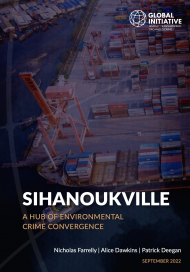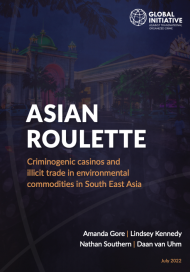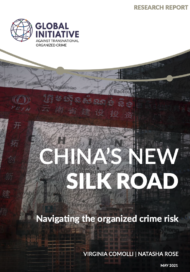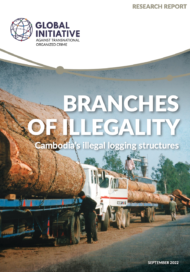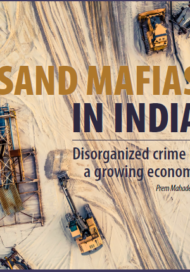Posted on 02 Sep 2022
The streets and beaches of Sihanoukville, Cambodia’s infamous party town, are under-discussed areas in the global effort against transnational organized crime. Sihanoukville is known to most readers as a gambling hub and shabby tourist hotspot. But these pre-pandemic clichés do little to explain the role of a city that washes millions – if not billions – of dollars worth of funds from across Cambodia, South East Asia and beyond.
This report interprets Sihanoukville’s hub status for transnational organized crime in four areas. The first section explores Sihanoukville’s role in the global supply chain of illicit environmental commodities. While few environmental commodities are sourced from Sihanoukville, forest products from other regions of Cambodia have found their way to the port before being trafficked onwards. Sihanoukville is also a destination for wildlife products from abroad (largely, Africa), with ivory and pangolin scales having been sourced for the local market or for sale and onward transport to consumers – primarily in China. Analysis of the ivory trade in Cambodia highlights Sihanoukville’s relevance to the global supply chain of illicit environmental commodities.
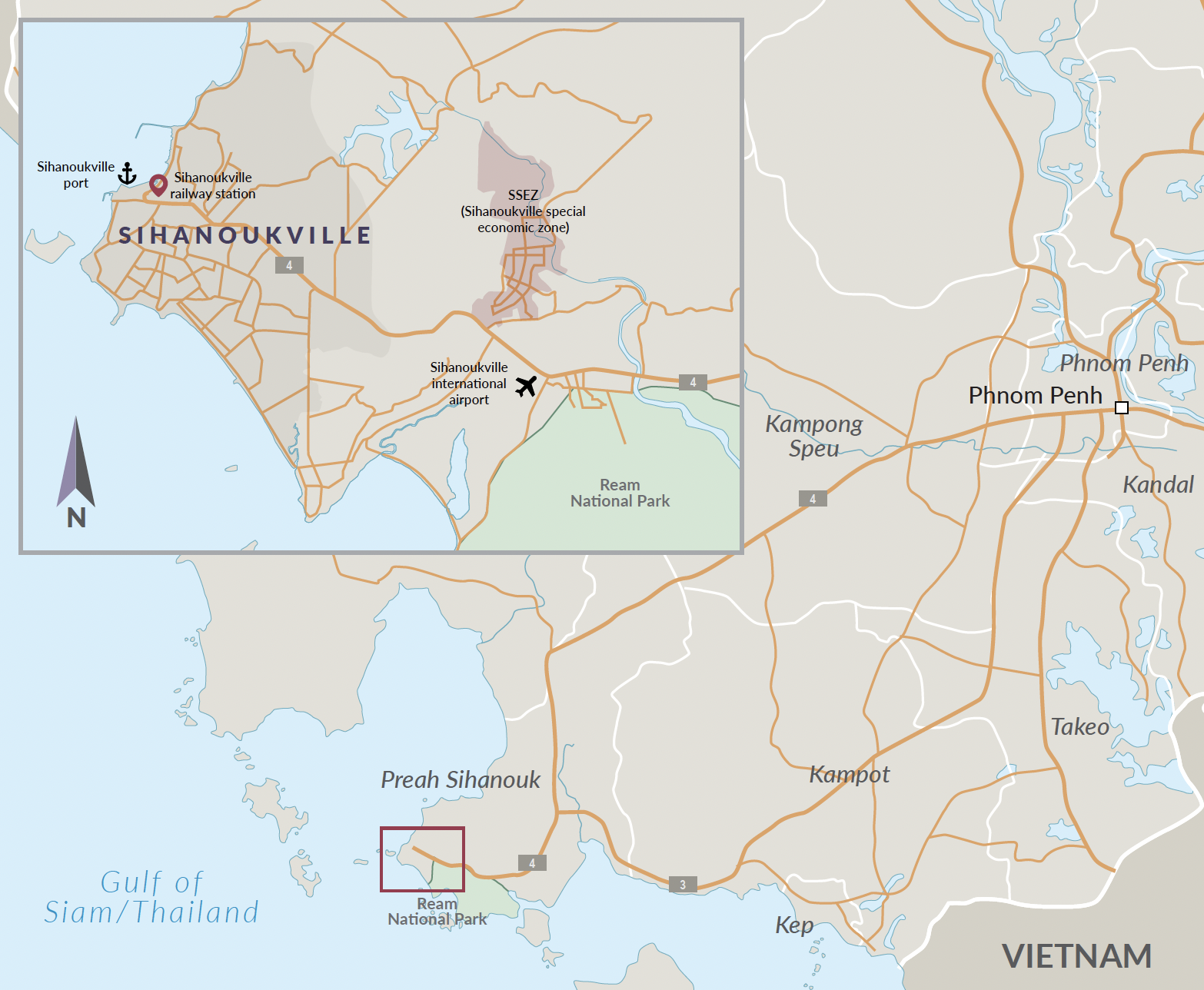 Contemporary Sihanoukville.
Contemporary Sihanoukville.
Section two examines the recent features of Sihanoukville’s criminal landscape. The emergence of new forms of criminality, including online scams, highlights the underlying themes in this report: the attractiveness of Sihanoukville for criminal enterprise, the adaptability and changing nature of criminality, and the relative impunity that criminal enterprises enjoy.
Section three analyzes the features of Sihanoukville’s political economy that have led to the city’s status as a dynamic and enduring hub for a myriad of interconnected criminal activities. A deep seaport paired with a large Special Economic Zone (SEZ) enables international trade and the movement of goods with limited oversight. Large-scale real estate developments facilitate capital flight and money-laundering activities. As section four explores, these factors, in combination with elite capture and weak local enforcement, have made Sihanoukville a safe haven for criminal enterprises.
The report concludes by outlining policy implications from this research. We conclude that the Chinese government’s serious interest in cleaning up the overseas image of Chinese corporations, especially in strategic Belt and Road Initiative (BRI) locations, means that a window of opportunity exists to nest environmental-crime enforcement within existing and robust Sino-Cambodian counter-crime efforts.
